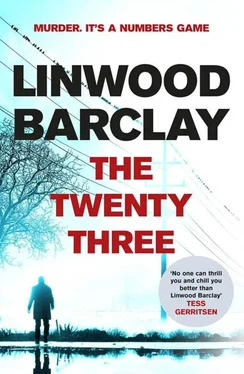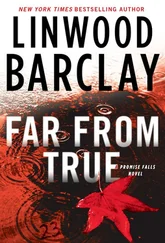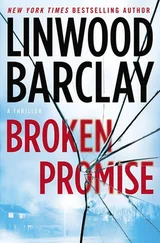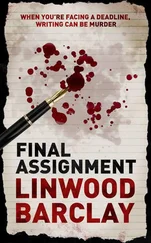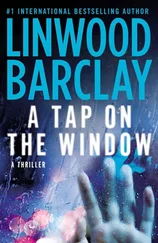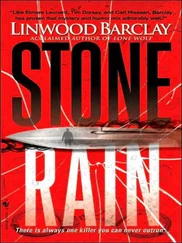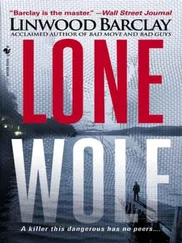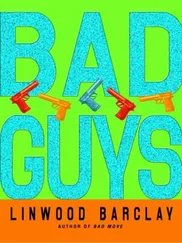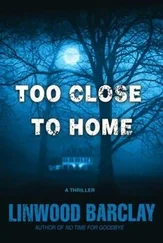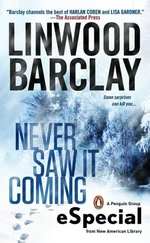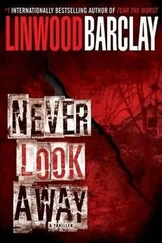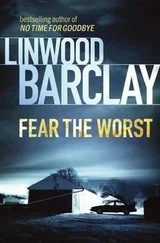The man’s eyes darted back and forth between Carlson and the woman, but the gun remained trained on the woman.
And Angus Carlson had his weapon trained on the man.
“Please, sir. I don’t know how good a shot you are, but if you pull that trigger, there’s a chance you may hit someone else. Maybe someone else’s mother. Or father. A son or daughter. And I have to tell you, if you pull that trigger, I’m going to have to do the same. I’ll have to shoot you. And even though I’ve had training, there’s a good chance I’ll hit someone I’m not supposed to, too.”
Everyone was frozen. No one in the hall was breathing.
“Think about your mother. Think about when she gets well. She’s going to need you. And how are you going to help her with her recovery if you’re sitting in jail someplace waiting to go to trial?”
Arlene said, “He’s right. What would your mother want?”
Carlson gave her a look that said I don’t need your help .
But Arlene continued. “If my son shot an unarmed woman, for any reason, I would be ashamed of him.”
A silence that felt eternal followed. But it didn’t go on for more than five or six seconds.
At which point the man said, “I don’t care.”
He raised the gun a quarter of an inch, looked at the woman in the hijab, squinted.
Carlson fired.
The shot was deafening, and in its wake came a chorus of simultaneous screams. The bullet caught the man in the upper thigh and blew him back, as though he’d been brought down by an invisible football player. As he fell, the gun slipped from his hand and clattered to the floor.
Carlson dived for it, scooped it up, then reached into his pocket for a set of plastic cuffs.
“You shot me!” the man said. “Jesus Christ, you shot me.” The screams lasted only a few seconds, and now some people, at least those who were not on gurneys, had switched to applause. Carlson holstered his own gun, tucked the man’s into the pocket of his sport jacket, then, as blood streamed from the man’s thigh, rolled him onto his side so that he could cinch his wrists together behind his back.
“The good news is,” Carlson said, “we don’t have to worry about how long it will take to get you to the hospital.”
A pretty good quip, considering his voice was trembling, and his heart pounding so hard it felt like it would come right out of his chest.
Duckworth
ONCEthe water treatment plant had been evacuated, I put a call in to Rhonda Finderman.
“If you haven’t already,” I told her, “you need to call the governor. If those Homeland Security guys who were here looking at the drive-in explosion can be called back, send them to the water plant. Tell them to bring their hazmat suits. The state has a spills response program for dealing with hazardous material, which is exactly what it looks like we’ve got here.”
“Is that the chief?” Randall Finley, who was several steps away from me, was trying to listen in on the conversation. “Because I have a complaint!”
Finderman said, “Who’s that?”
“Never mind. Did you get what I said?”
“Yes,” she said. “And I just got a call from the state environmental unit. They think they may have a handle on what’s in the water.”
“Let me guess,” I said. “Sodium azide.”
“Jesus, yes. How did you know?”
“It’s spilled all over the floor in the plant, around where the fluoride tanks are.” I lowered my voice. “I’ve been downplaying terrorism with all the shit that’s been going on, but if this isn’t a terrorist act, I don’t know what is. But what the hell is sodium azide?”
“It’s bad, bad stuff,” Finderman said. “At least, when it’s added to water, it is. They use it in automobile air bags, among other things. When it’s triggered by an electrical charge, it turns into nitrogen gas and blows up.”
“Yeah, well, that’s not how it’s being used here.”
“It’s got no odor or taste, and if it’s added to water, it causes all the symptoms we’ve been seeing at the hospital. Convulsions, respiratory failure, dropping heart rate.”
“What can they do for it?” I asked.
“Nothing.”
“Say again?”
“ Nothing , Barry. There’s no magic pill, no antidote. You either live or you don’t. Severity of symptoms depends on exposure, or how much is ingested. If what you swallowed didn’t quite kill you, you could end up with permanent lung or brain damage.”
“Whoever put this into the water killed one of the workers here,” I said.
“Who?”
I told her.
“What’s killing one guy when you’re ultimately planning to kill hundreds, or thousands?” Finderman asked.
She had a point.
“What’s the death toll?” I asked her.
“It’s gone up. It was a hundred and twenty-three, but I just heard we’re revising that up to one hundred and thirty-one.” A pause. “I lost my niece. Esme. She was seventeen. My brother and his wife, they’re beyond devastated.”
“I’m sorry,” I said.
“I want who did this,” Rhonda said. “Whoever he is, or whoever they are, I want them.”
“There’s more,” I said.
“More what?”
I told her about Lorraine Plummer, the murdered student at Thackeray College. “I had to leave the scene,” I said regretfully. “I couldn’t get Wanda or anyone else to get there. We need a crime scene unit there.”
“We’ve had to bring in coroners from other jurisdictions,” the chief said. “It’s like we’ve had a flood, a hurricane, and locusts all at once. A few years’ worth of bodies in a single morning.”
“The Thackeray thing, even in light of what else has happened today, is big, Chief.”
“Go on.”
“Our guy is back.”
“What guy? What-no, come on.”
“Wanda will have to do a full autopsy, but I had a good look at the body. The wounds are the same as on Olivia Fisher and Rosemary Gaynor.”
“Goddamn it, Barry. When are you going to let this go?”
“I’d be more than happy to take you to look at the body and let you judge for yourself.”
There was quiet at the other end. The Fisher and Gaynor murders were evidently still a source of friction between us, but I’d already admitted to myself there was plenty of blame to go around.
“Duncomb’s dead, and Gaynor’s in jail,” the chief said. “Your two lead suspects.”
“Yeah.”
“Shit,” Finderman said. “If you think it’s the same killer… I trust your judgment.”
“There’s nothing I can do here right now,” I told her. “I can’t even have anyone get near Tate Whitehead’s body. The whole area has to be closed off until it’s been given an all clear. I’m going to spend the next few hours working the college homicide.”
“Just keep in touch,” Rhonda Finderman said.
Finley, who’d been watching me this whole time, said, “I want to talk to her! I want to talk to her right now!”
I put away my phone.
Finley waved a finger at me. “You’re going to be sorry when I’m mayor.”
“We don’t agree on much, but I think you’re right about that.”
“I don’t forget.”
I closed the distance between us, put my face in his. “I don’t forget, either, Randy. I never forget. The other day, when you called me to check out all those dead squirrels, and you hinted around, wondering whether I had anything on anybody, I thought, no, I don’t play that game. I don’t have anything on anybody. Except maybe that’s not true. Maybe I have something on you .”
He took a step back. “Me? What the hell have you got on me?”
“I was on the phone a few minutes ago and learned something kind of interesting. Something interesting about you, Randy.”
Читать дальше
